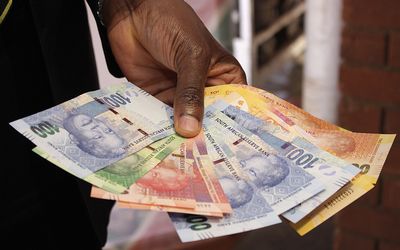
ABUJA — The rand weakened for a sixth day against the dollar, the longest stretch of losses in five months, after South Africa posted a wider-than-estimated trade deficit and before the United States manufacturing data.
The trade gap in Africa’s biggest economy was R18,9 billion ($1,9 billion) in September as strikes curbed car and mining exports and oil imports increased, the South African Revenue Service said yesterday.
That was wider than the median 16,4 billion rand estimate of 12 economists in a Bloomberg survey.
The Institute for Supply Management’s manufacturing index fell last month, a US release today may show.
“The serial negative surprises in the trade data suggest that the current-account deficit could take longer to adjust,” Theuns de Wet, head of global markets research at Rand Merchant Bank in Johannesburg, said in an e-mail today.
A strong US manufacturing number is “likely to fuel speculation of a December Fed taper and weaken the rand further”.
The rand weakened 0,2% to 10,0658 per dollar by 11:46am in Johannesburg, bringing its loss this week to 2,4%, the worst among major currencies after the Swedish krona, according to data compiled by Bloomberg.
Yields on benchmark bonds due December 2026 rose three basis points, or 0,03% point, to 8,08%, extending their worst week since August 16. The US ISM Manufacturing gauge rose to 55 last month from September’s 56,2, which was the strongest since April 2011, according to a Bloomberg survey. Readings above 50 indicate expansion.
- Chamisa under fire over US$120K donation
- Mavhunga puts DeMbare into Chibuku quarterfinals
- Pension funds bet on Cabora Bassa oilfields
- Councils defy govt fire tender directive
Keep Reading
South Africa’s purchasing managers index advanced to 50,7 in October, Kagiso Tiso Holdings in Johannesburg said today in a report, compared with the 49,1 in the previous month.
The Federal Reserve’s Open Market Committee maintained its $85 billion in monthly bond purchases this week that propelled investors’ demand for emerging-market assets. — Bloomberg News










